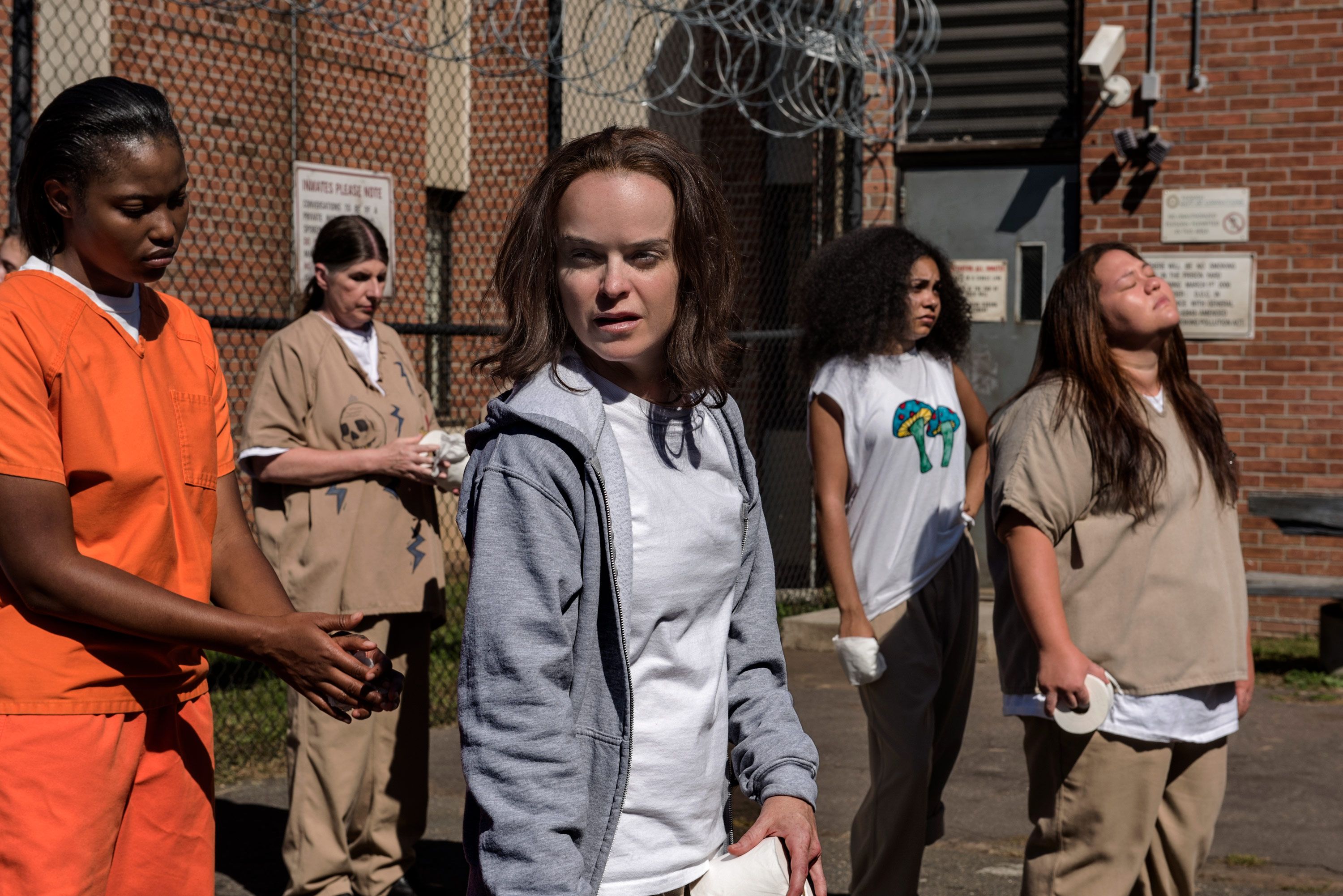

At its worst, “Orange Is the New Black” glosses over pain for the punchline.

A late-season episode makes that line literal with a few sound cues and establishing shots that belong in a horror B-movie, while presenting two possible options for what’s happening: Something quite funny, and something absolutely terrible. “Orange Is the New Black” has always had the air of a repossessed lesbian exploitation film, and it is hell-bent on pursuing a tone that walks the line between pure grit and pure camp. Taystee is arguing with guards, bureaucrats, and other inmates, but she might as well be arguing with the audience.įor all of these changes, however, the show is still the show. In centering her, and giving that narrative meaning, “Orange Is the New Black” puts the fine point of action on a show that has until now engaged primarily with stories. In her story is the roots of the community organizer, the grassroots activist - the politician of the future. Taystee, clear-eyed, is looking for something grander. Most of “Orange Is the New Black” is about survival. Brooks throws herself into the role with passion, and her character ends up being the mouthpiece through which some of the most fundamental questions the show advances - about the carceral state, and its abuses, in America. Her best friend Poussey’s death at the end of Season 4 serves as her catalyst for action through most of Season 5, even when most of the other inmates - and the show’s storytelling - is prepared to move on. But most of them, like most people, happen to find cruelty more accessible when they are hemmed together and starved of resources.ĭanielle Brooks’ Taystee, always a standout, comes into her own as the emotional and intellectual heart of the show in Season 5. Sure, some of our inmates have no apparent moral compass. What the show is really confronting is the darkness of humanity. With sudden power comes sudden responsibility, and the newly unstructured Litchfield - with its population of poorly treated mentally ill inmates and racially factionalized convicts - is fertile ground for chaos. More than any other season of the show, Season 5 grapples with the darkness at the heart of its characters. Freedom has a way of altering the emotional and narrative arc of a person a show that spent four seasons focusing on the past, and loss, now has the opportunity to explore where its characters currently are, and how they might continue to evolve.īut with these freedoms come a cascading set of problems. And rather than necessarily highlight what the inmates did in the past to end up in Litchfield, Season 5’s flashbacks and perspective shifts offer insight into the skills they gained and the families they’re trying to get back to. A couple of inmates have coffee for the first time in years after finding some Café Bustelo in the guards’ break room. The prison’s dynamic changes quickly to accommodate an economy of repossessed cell phones and candy raided from commissary. No curfew, no shots, no uniforms nothing but time and the building’s walls and whatever supplies they have left. The device is made all the more fascinating by the fact that in Season 5, practically everything about life at Litchfield is a reversal: The guards are now hostages, the inmates are preventing other people getting in instead of biding their time to get out, and within the walls of Litchfield the prisoners are now just a little bit free. It’s a brilliant tactic that constrains the canvas of this endlessly broad show to just a few tense days. But after last season’s explosive finale that ended with the beginnings of a prison riot, the fifth season follows through, starting at the very moment season four left off and tightening its lens to cover just the few days that follow.


The past four seasons of the show have emphasized unfolding, deconstructing, and expanding - giving more and more characters backstories and empathetic storylines as protagonist Piper Chapman (Taylor Schilling) served her 18 months in minimum security prison. For a show that prides itself - even defines itself - on its sprawl, “ Orange Is the New Black” returns for a fifth season that is uncharacteristically taut and contained.


 0 kommentar(er)
0 kommentar(er)
